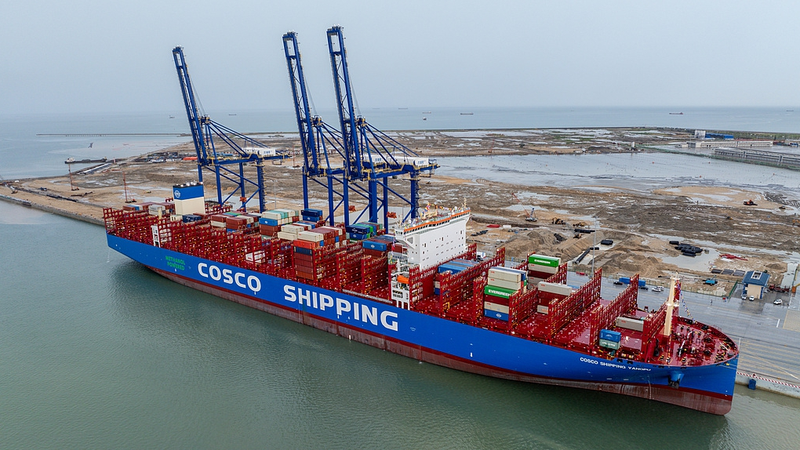In a landmark moment for the Chinese mainland’s green shipping push, the first batch of green methanol produced from urban waste was successfully injected into a conventional diesel vessel at Yangpu Port in the island province of Hainan. This 200-tonne refueling—completed on Wednesday—cuts CO₂ emissions by an estimated 325 tonnes, equivalent to the carbon sink effect of planting more than 19,000 trees.
Produced by China BlueChemical Ltd., an affiliate of the China National Offshore Oil Corporation, this eco-friendly methanol is derived from biogas created through the fermentation of municipal kitchen scraps, animal manure and other organic waste. By turning everyday refuse into a cleaner-burning fuel, the project tackles two challenges at once: reducing landfill waste and lowering carbon emissions in one of the world’s most carbon-intensive industries.
“This milestone brings us one step closer to a zero-carbon future for maritime transport,” said Wu Hongsheng, head of China BlueChem’s green methanol working group. “By demonstrating that green methanol can power existing vessels, we’re unlocking new pathways for emissions reduction without overhauling current fleet infrastructure.”
Shipping contributes roughly 3% of global CO₂ emissions, and green methanol is gaining attention as a viable alternative to traditional marine fuels. With scalable production methods and a growing network of refueling hubs, experts believe this technology could reshape global trade routes and supercharge the race toward net zero.
Next stops for green methanol trials include larger cargo ships and international shipping lanes, as the industry explores partnerships across Asia, Europe and beyond. For young entrepreneurs, sustainability champions and tech innovators, the rise of biofuels in shipping represents a fertile frontier for investment, research and real-world impact.
Reference(s):
China's 1st green methanol injection completed on diesel-fueled vessel
cgtn.com




